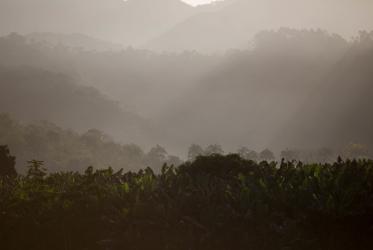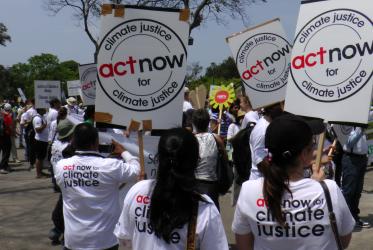Displaying 1 - 18 of 18
Voices from Colombia: “What if we have no land to till?”
15 February 2018
Protect the Amazon, urges WCC statement
22 November 2017
G20 summit: call to pray for peace in Hamburg
07 July 2017
G7 must address famine
22 May 2017
Churches' “prophetic voice” will be busy in 2015
18 June 2015
WCC joins a call to protect climate refugees
24 September 2013









